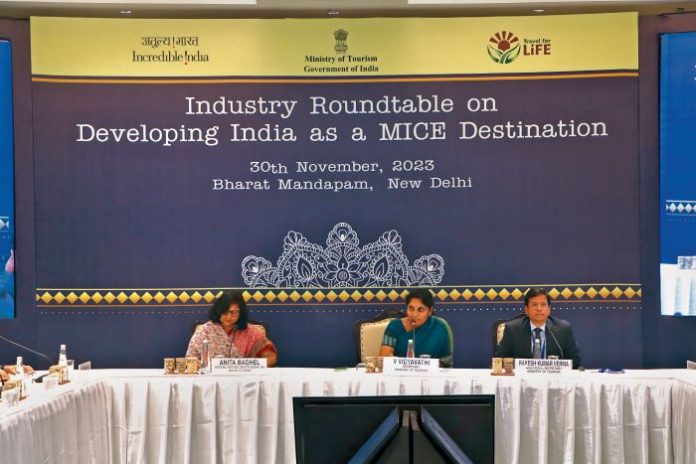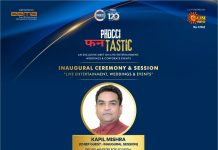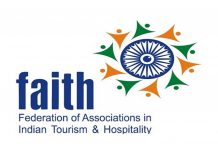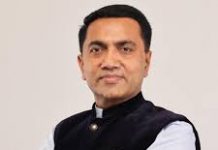The Ministry of Tourism (MOT) organized an industry roundtable, bringing together CEOs and senior luminaries from the M!CE sector of the country, giving their suggestions to transform India into a premier M!CE destination.
Janice Alyosius
The Ministry of Tourism (MOT), Government of India, in a move to strengthen India’s presence in the global M!CE sector, held an industry roundtable, which was in direct response to the overwhelming global interest sparked during India’s G20 Presidency.
Kickstarting the conversation, V Vidyavathi, Secretary, MOT, called upon global agencies and industry leaders to consider their contributions to the tourism ecosystem and how the MOT can enhance this sector, stressing the importance of building on the momentum created by India’s G20 Presidency.
Rakesh Kumar Verma, Additional Secretary, MOT, followed with a comprehensive presentation on the National Strategy for M!CE Industry, detailing the vision, mission, goal, and key strategic pillars critical for nurturing and promoting the scope of M!CE industry in India.
The roundtable witnessed a collective and insightful contribution from CXOs and senior leaders across the industry. They emphasised on India’s rich cultural and natural diversity as a significant destination for M!CE tourism, while also underlining the untapped potential within the domestic market.
Emphasising the importance of incentivising corporations to choose India as a preferred M!CE destination, Jyotsna Suri, Chairperson & Managing Director, The Lalit Suri Hospitality Group said, “Most of our weddings and M!CE movements are taking place outside India. In fact, for M!CE, we have an excellent infrastructure, offering a little incentivisation to corporates would be beneficial. For weddings in India, it is not just about the ceremony; we require more hotels with improved connectivity to various areas. By promoting the ‘I-Do’ campaign extensively, we can start domestically and gradually expand internationally.”
Naveen Kundu, Managing Director, EbixCash Travel, highlighted the necessity for streamlined access to regulatory companies in India. He said, “We manage approximately 100,000 people in M!CE every year. Last year, due to visa unavailability, we conducted 50-55 per cent of these activities in India, and the rest were carried out overseas. This year, 70 per cent of our activities were conducted overseas, with only 30 per cent in the country. One critical action that the ministry ought to take is to ensure access to all regulatory companies in India. The ministry should issue advisories to these companies through the regulator, addressing the observed trend of sending people abroad. This trend leads to significant losses for the exchequer, particularly concerning the outflow of foreign exchange. Currently, India is experiencing an outflow of US$5.39 billion in foreign exchange, and tourism alone contributes to 20-30 per cent of this outflow annually.”
Commenting on the space constraint in India for future conventions, Puneet Narula, Hospitality Business Head, Convention & Exhibition Centre, Reliance Industries Limited, pinpointed, “85-95 per cent of our business last year and a half has been exclusively domestic. Someone mentioned that our books might not have enough space, and that holds true. Consequently, a ‘yes’ for a convention in India might not materialize in 2024 and 2025. Even if it were to happen today, it is likely that I would have already allocated that space to an exhibition or a domestic conference. However, we need to reconsider our share of the market significantly. This is crucial.”
Narula also drew attention to the strategies adopted by various international destinations. He said, speaking about the M!CE board or bureau, “besides marketing efforts, focusing on evolved destinations—take Thailand, for instance—reveals a different approach. Thailand boasts a convention bureau budget of `200 crores, investing not just in marketing but also in business development. They offer substantial support to event organizers and the industry financially, aiding in the time-consuming bidding process, which incurs expenses. In these scenarios, intermediaries, such as our travel partners, often face compromise as they strive for this business. As a venue provider pursuing the same opportunities, the risks primarily rest on their shoulders, considering the expenses involved”.
He underscored the need for India to leverage its inherent strengths, while addressing infrastructural limitations and regulatory challenges. “We possess a significant opportunity, and India has everyone’s attention. However, the convention bureau, like the ICPB or its reinvention must focus on business development rather than just marketing. They need to take the lead in this aspect. Thailand’s convention bureau was established in 2002, boasting a `200-crore budget that reportedly generates revenue 100 times greater for the country. A comprehensive destination approach involving all stakeholders, with the government taking the lead rather than merely participating, is essential. There is a requirement of holistic destination approach and a strategic convention bureau guiding the way,” he said.
Emphasising about the absence of prominent Indian campaigns featuring on billboards on Broadway in Manhattan, New York, Phil Chung, Chief Executive Officer, Yasho Bhomi (Kinexin) questioned why the country lacked visibility on the global stage. “Why do not we have Indian campaigns there? Why do not we see promotion campaigns for India?” He said that there was an urgent need to exhibit India’s multifaceted appeal more aggressively.
Chung also stressed on the importance of government intervention in encouraging international conventions and exhibitions across diverse industry sectors. He said, “If the Indian government mandates every industry to bring in more global conventions and exhibitions, covering top players from all industry sectors, it would be mutually beneficial. We need to acknowledge the top ten events as per each industry and incentivize them.”
While discussing challenges faced by foreign organizers, Chung underscored the lack of standardized tourism packages aligned with conventions in India. He pointed out, “When I try to introduce India or our venue in New Delhi to foreign organizers, they ask about the tourism packages available when they visit India. They inquire about spouse programs, half-a-day or full-day city tourism packages aligned with those conventions. There is not a standardized platform or package despite the presence of many travel agencies. So, we need city-by-city and region-by-region package programs for all aspects.”
Homa Mistry, CEO, Trail Blazer Tours India, shed light on the absence of insurance coverage for business losses. He emphasized, “The loss of business is not covered by any insurance companies. We, as tour operators, faced losses during COVID—flight cancellations, advances.” The lack of insurance options for cancellations is beyond the control of tour operators, where the government’s support is necessary. “When looking at big M!CE events, globally, people have business loss insurance.” he added. The government should organize meetings with insurance companies to assure appropriate event insurance coverage plans irrespective of the premium so that more event planners can rely on Indian partners, as per Mistry.
“Offering a little incentivisation to corporates would be immensely beneficial.”
Jyotsna Suri, Chairperson & Managing Director, The Lalit Suri Hospitality Group
“The ministry should issue advisories to companies through the regulator, addressing the observed trend of sending people abroad.”
Naveen Kundu, Managing Director, EbixCash Travel
“85-95 per cent of our business last year and a half has been exclusively domestic. We need to reconsider our share of the market significantly.”
Puneet Narula, Hospitality Business Head, Convention & Exhibition Centre, Reliance Industries Limited
“Foreign organizers inquire about spouse programmes, half-day or full-day city tourism packages aligned with conventions when they visit India.”
Phil Chung, CEO, Yasho Bhomi (Kinexin)
“There needs to be a meeting with insurance companies so that whatever the premium, we should be able to buy insurance.”
Homa Mistry, CEO, Trail Blazer Tours India















